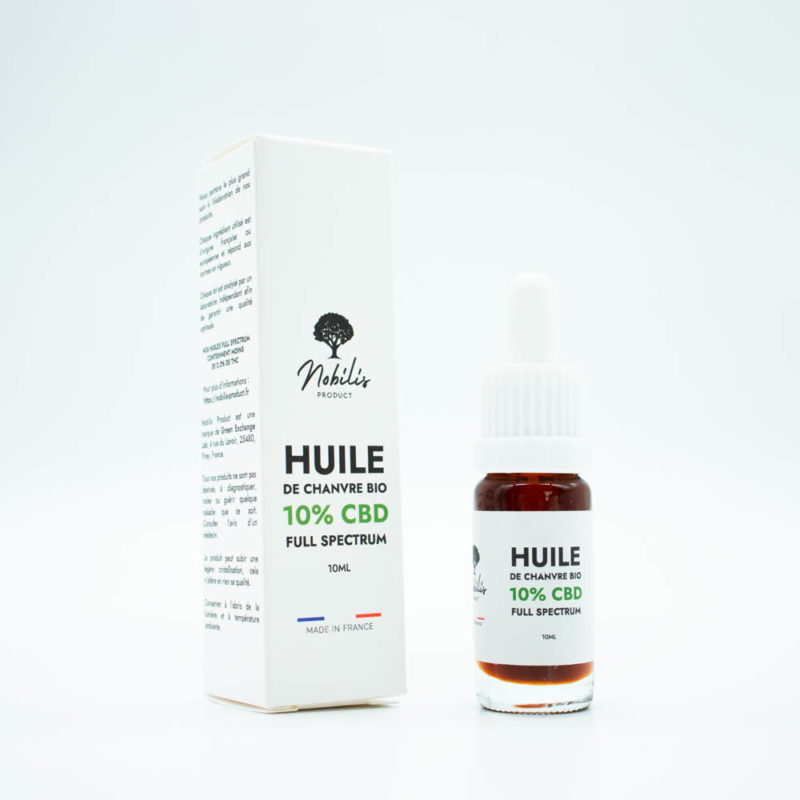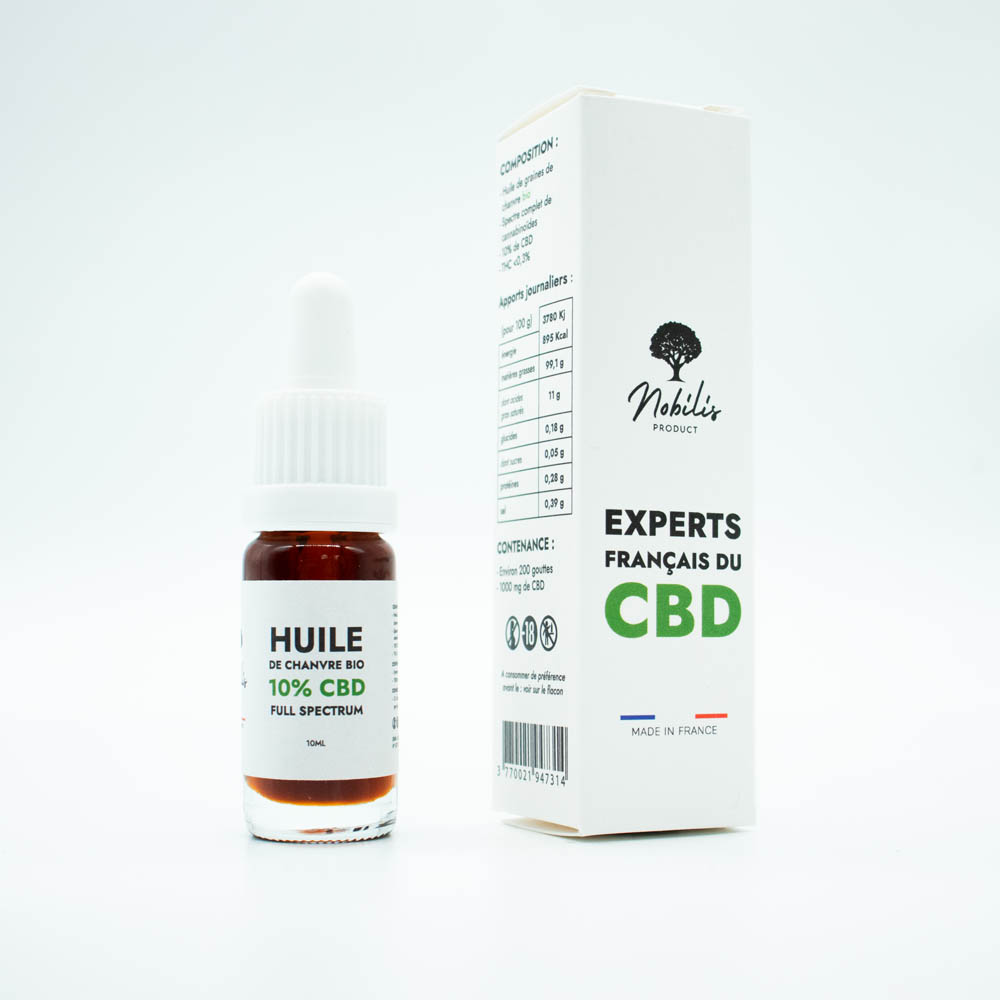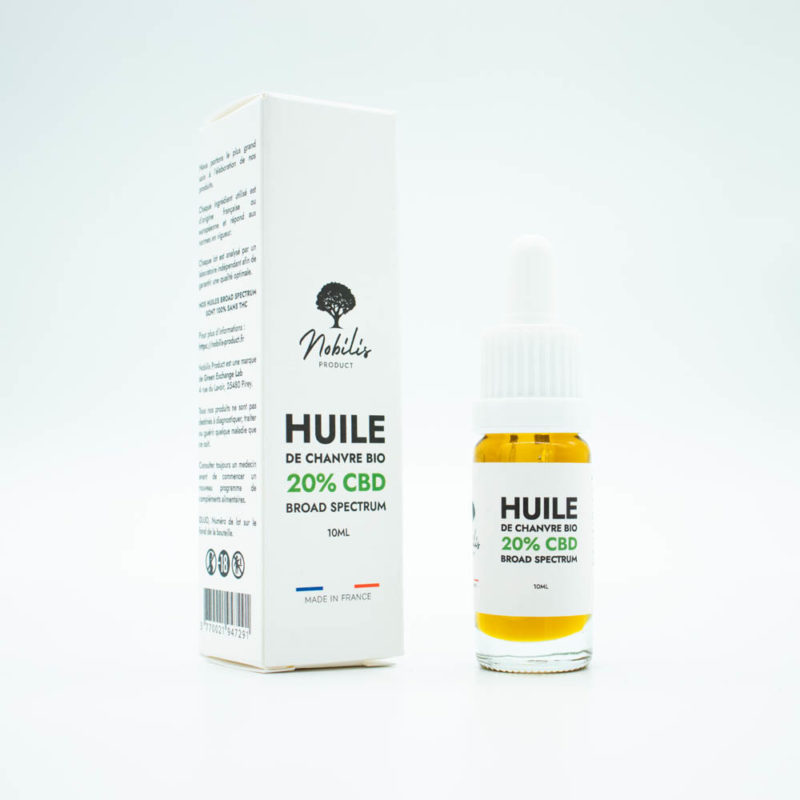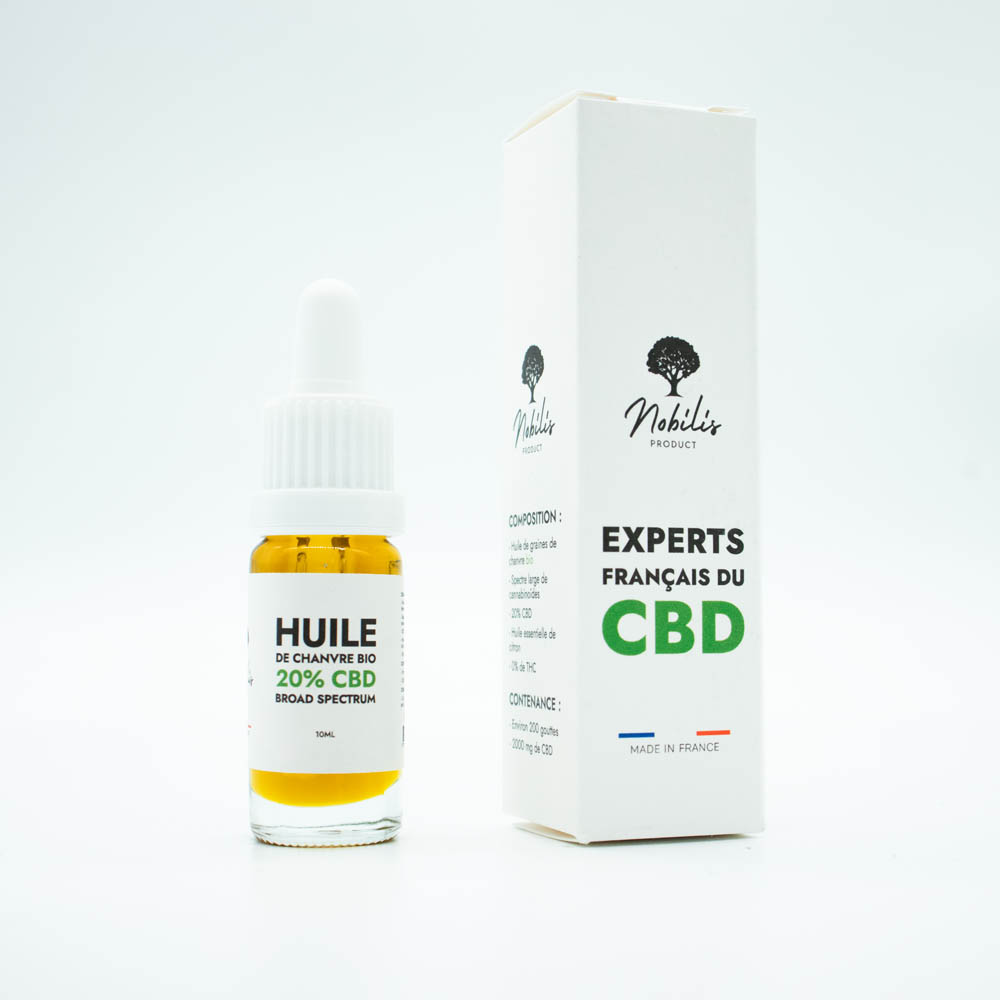The burgeoning research into the potential health benefits of cannabidiol (CBD) is generating keen interest in the medical field, and this includes its application in the treatment of inflammatory bowel diseases such as ulcerativecolitis (UC).
In this article, we explore the various studies carried out on the potential beneficial effects of CBD on this little-known intestinal disease, which is not all that rare, since in France it affects around 80,000 adults.
Table of contents
Hemorrhagic rectocolitis (UC): definition, causes and treatments
UC is a disease that can occur at any time, but generally manifests itself between the ages of 15 and 35. It affects around 1 in 1,500 people, both men and women. And although it's not serious, it does have a negative impact on quality of life.
To find out more about UC and Crohn's disease, visit the AFA Crohn's and UC Association website. Inflammatory bowel disease (IBD) is a complex disease, so we've limited ourselves here to a summary of what you need to know about UC.
What is ulcerative colitis?
Hemorrhagic rectocolitis (UC), also known as ulcerative colitis, is a chronic inflammatory bowel disease. Unlike Crohn's disease, which can affect any part of the digestive system from the mouth to the anus, UC primarily affects the mucosa of the colon and rectum.
UC is characterized by an aggressive, localized immune response, leading to the formation of ulcers on the inner lining of the colon.
This inflammation causes a series of very unpleasant symptoms, such as bloody diarrhea, often accompanied by abdominal pain and cramps. Repeated diarrhea can also lead to significant weight loss and chronic fatigue.
Most often, this disease manifests itself in the form of relapses, periods during which symptoms are very intense, alternating with phases of remission.
The severity of symptoms varies from person to person, but one thing is certain: UC has a negative impact on quality of life.
What causes UC?
UC is a multifactorial disease likely caused by a combination of factors including:
- Genetic predisposition: several genes have been associated with UC, in particular the NOD2 gene;
- An imbalance in the intestinal microbiota caused by various external factors such as smoking, previous intestinal infections and the quality of the diet ;
- And finally, stress, although not considered a direct cause, can trigger or aggravate UC symptoms.
Although the mechanisms of the disease are not yet fully understood, it appears to be of autoimmune origin. In effect, the immune system attacks and destroys the intestinal flora, causing severe inflammation of the colon.
What about treatments?
UC is a disease for which there is no treatment. However, a number of palliative treatments are available to reduce the incidence of symptoms and prolong the period of remission. These include :
- Anti-inflammatories such as aminosalicylates (like mesalazine) are often used to treat mild to moderate forms of UC. They help reduce inflammation of the intestinal mucosa;
- Corticosteroids, such as prednisone, are used to rapidly control inflammation in acute flare-ups. However, they are generally not suitable for long-term use, due to their potential side effects;
- Immunomodulators, such as azathioprine or methotrexate, may be used to maintain remission in patients who do not respond well to aminosalicylates ;
- Biological drugs, such as anti-TNFs (infliximab, adalimumab) or anti-integrins (vedolizumab), are used to control inflammation by targeting specific proteins in the immune system. They are often used in severe forms of UC.
- Surgical intervention, such as colon removal (colectomy), may be recommended in severe cases of UC or in the presence of complications such as severe bleeding.
At the same time, anti-diarrhea drugs, painkillers and nutritional supplements can be used to relieve symptoms and maintain nutrition.
What are the potential effects of CBD on UC?
What is the link between CBD and UC? Answer: the endocannabinoid systemsystem, a network of receptors that regulates many key physiological processes and shows a strong affinity with hemp molecules ( = cannabinoids) such as CBD.
In other words, CBD is able to act on some of our receptors (notably CB2, located in the digestive tract), giving it a whole host of potential properties. Some of these could be beneficial for people with UC, but also for those suffering from Crohn's disease or irritable bowel syndrome.
Modulates the inflammatory response in the gastrointestinal tract
As mentioned earlier, UC is caused by a disturbance of the immune system. In fact, the inflammatory response is so aggressive that it seriously damages the walls of the colon.
In this sense, the anti-inflammatory and immunosuppressive and immunosuppressive properties of CBD. Several studies [1][2] suggest that CBD :
- Can regulate the inflammatory response through its action on the immune system;
- Induces apoptosis in immune cells, helping to reduce the intensity of the inflammatory response;
- No serious side effects or addiction.
Of course, further further studies are needed before CBD can really be considered as a potential treatment for UC. However, in view of the preliminary observations and its safety, we can expect research to pursue this avenue!
Reduces intestinal muscle contractions
As we mentioned earlier, endocannabinoid receptors - the CB2s - are localized in the in the digestive tract.
A team of researchers has studied CBD's action on these receptors. And, although the study was carried out on an animal model, the observations are, once again, very encouraging.
This experiment [3] shows that CBD can improve intestinal motility ( = muscular movements that occur in the digestive tract to facilitate digestion), which could prove interesting in the context of UC, as it could help to reduce the severity of diarrhoea and digestive disorders associated with the disease.
Antioxidant properties
Although the link is not yet fully understood, some studies suggest that oxidative stress (=a biological process that occurs when the body produces an excess of free radicals) may trigger or aggravate IBDs such as UC.[4] This is why it's important to consider the effects of oxidative stress.
In fact, oxidative stress can contribute to inflammation of the colon walls by damaging the cells of the intestinal mucosa and triggering an overly aggressive immune response.
Widely documented in the scientific press, CBD's antioxidant properties could be useful in preventing and slowing the progression of UC. Indeed, research suggests that CBD is capable not only of destroying free radicals, but also of preventing their synthesis[5].
Reduces the pain associated with UC
Finally, CBD could help UC sufferers manage their pain. In fact, several studies show that the small molecule derived from hemp also harbors analgesic properties.
As already mentioned, CBD's mechanisms of action are not yet fully understood. However, numerous studies have highlighted the link between CBD and the synthesis of serotonin, a hormone involved at many levels in our bodies, including pain management.
It's good to know that CBD's action on the synthesis of this hormone also promotes better quality sleep via its tranquilizing action. It also helps combat stress, anxiety and mood disorders.
Cannabis and UC
Before discussing the administration of CBD for UC, let's digress for a moment to discuss the use of cannabis to treat intestinal diseases. We feel it's important to bear in mind that the therapeutic properties attributed to CBD are in fact the result of a synergistic action between all the plant's molecules.
Studies suggest that cannabis consumption can significantly reduce the incidence of IBD symptoms. Indeed, a survey [6] of 300 people found that cannabis helped reduce abdominal pain in almost 90% of cases, cramps in almost 80% and diarrhoea in almost 30%.
In France, it is not (yet) possible to purchase therapeutic cannabis. However, as we shall see, there are products whose composition is faithful to the molecular baggage of cannabis, while remaining perfectly legal. These are the products we recommend for optimum effect.
CBD and UC: recommended products and dosage
We've already revealed some of our advice on choosing the right type of CBD for UC. Here are a few additional recommendations, particularly in terms of dosage.
Before doing so, it's imperative to seek your doctor's advice. Taking CBD could lead to drug interactions and undesirable side effects.
Which CBD?
Any CBD product, provided it's of good quality, can be used to manage the symptoms of ulcerative colitis. Generally speaking, however, CBD oil is often recommended for its practical application and ease of use.
However, it's essential to choose a high-quality CBD oil, produced by reputable manufacturers, and ideally obtained from organic hemp sources, as is the case with Nobilis-Product.
Indeed, the quality of CBD oil is important as it ensures that the product does not contain harmful contaminants, such as heavy metals or pesticides, which could aggravate UC symptoms. For this reason, it is advisable to request the corresponding laboratory test results. This will also enable you to check the concentration of CBD and other cannabinoids.
And, as we've already mentioned, there are a number of products that reproduce the natural composition of hemp. These products are called "full spectrum" CBD oils. They contain all the molecules of cannabis, including THC, but concentrated at less than 0.3% to remain legal and not cause any psychotropic effects.
If, however, you don't want to consume THC at all, then you can opt for broad spectrum oil, which contains all the molecules of hemp except THC.
-
CBD Oil 10% Full Spectrum - Nobilis Product
Rating 4.75 out of 524,90 €Discover our Full Spectrum 10% CBD oil from hemp grown in France, without additives or GMOs. Its richness in cannabinoids and terpenes guarantees an optimal surrounding effect for deep relaxation and natural well-being. Practical 10 ml bottle with pipette for precise dosage.
Our Full Spectrum 10% CBD oil is :
🇫🇷 Manufactured from A to Z (from hemp extraction to bottling) in our French laboratory.
🧪 Made with CBD crude to provide all the cannabinoids, flavonoids and terpenes.
✅ Analyzed by an independent laboratory for each batch to guarantee quality.
-
Broad Spectrum 20% CBD Oil - THC-free
Rating 5.00 out of 529,90 €Opt for our Broad Spectrum 20% CBD oil, a higher concentration for more powerful soothing and relaxing effects. Perfect for those seeking optimal relief from the natural THC-free benefits of CBD.
Our Broad Spectrum 20% CBD oil is :
🇫🇷 Manufactured from A to Z (from hemp extraction to bottling) in our French laboratory.
🧪 Made with CBD distillate to provide all the cannabinoids except THC.
✅ Analyzed by an independent laboratory for each batch to guarantee quality.
What dose and how often?
Determining the appropriate dosage of CBD oil for the treatment of ulcerative colitis (UC) is a complex and individual matter. Moreover, it should be supervised by a healthcare professional.
This depends on a number of factors, including the severity of UC, individual sensitivity to CBD and current medical treatments.
However, in general, it's advisable to start with a low dose, sometimes as little as a few milligrams a day, and gradually increase until you find the optimum dose. To give you an idea, you can start with 3 to 5 drops/day of an oil concentrated to 10% CBD.
In any case, it's important to note that CBD should not be used as a stand-alone treatment for UC, but rather as a complement to conventional medical treatments.
Our sources
[1] Cannabinoid CB2 receptors in the gastrointestinal tract: a regulatory system in states of inflammationBritish Pharmacological Society
[2] Cannabinoid-induced apoptosis in immune cells as a pathway to immunosuppressionPubMed
[5] Antioxidative and Anti-Inflammatory Properties of CannabidiolPubMed




